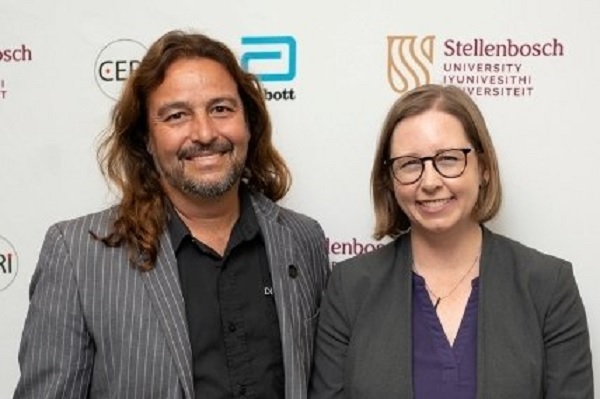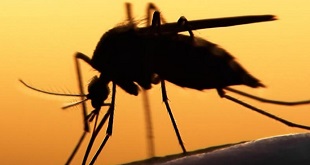
Abbott and CERI join forces in the hunt for the next global viral threats caused by climate change
Kampala, Uganda | PATRICIA AKANKWATSA | Africa is one of the most vulnerable continents to the impacts of climate change. The rise in temperatures, changes in rainfall patterns, and extreme weather events have created a breeding ground for deadly viruses.
As a result, the Abbott Pandemic Defence Coalition (APDC) launched two partnerships to address this issue; the first partnership is with CLIMADE where scientists trained in infectious diseases, bioinformatics and data science will develop technologies that can aggregate environmental, weather and viral sequencing data sets to predict if conditions could cause a disease outbreak.
The second partnership is with the Centre of Epidemics Research Institute (CERI) which saw the launch of a state-of-the-art genomic’s facility in Cape Town built to detect and respond to viral threats in Africa. The lab is equipped with next-generation metagenomic and sequencing capabilities which revolutionise how viruses are discovered.
Climate change effects, such as warmer temperatures and a rise in droughts and floods, have accelerated the spread of disease, which could fuel a new era of pandemics. Research has found that climate change will impact more than half of known infectious diseases, which commonly spread via water or animals carrying diseases, such as Lyme disease, West Nile virus and malaria.
Climate change can also impact unknown or reemerging viruses as animal habitats change, leading to more opportunities for animal-to-human transmission.
As part of the consortium, scientists trained in infectious diseases, bioinformatics and data science will develop technologies that can aggregate environmental, weather and viral sequencing data sets to predict if conditions could cause a disease outbreak. If a potential outbreak is identified, resources and rapid surveillance testing can be sent to that location to prevent further spread.
While speaking at the launch in a ceremony held on Zoom on April 21st, Gavin Cloherty, PhD, head of infectious disease research and the Pandemic Defense Coalition in Abbott’s diagnostics business said that Abbott’s work with CLIMADE is focused on tracking and predicting events so testing and medical resources can be deployed to prevent the spread of disease making a real impact in communities and people’s lives.
“Abbott’s work with CLIMADE is focused on tracking and predicting events so testing and medical resources can be deployed to prevent the spread of disease making a real impact in communities and people’s lives adding that imagine being able to track weather patterns to determine if rising floods may lead to a water-borne disease outbreak,”
The CLIMADE consortium will be focused on improving surveillance tools and expanding access to resources to decrease the impact of climate-amplified diseases and epidemics. The global group of scientists is led by Tulio de Oliveira, PhD, a professor at the Centre for Epidemic Response and Innovation (CERI) in South Africa as well as Luiz Carlos Alcantara, PhD, a professor at the Fundação Osvaldo Cruz (FIOCRUZ) in Brazil.
“The partnership with the Abbott Pandemic Defense Coalition will help train Africa’s next generation of virus hunters and public health experts in protecting public health so that they can track and identify viruses faster and smarter,” said Professor Tulio de Oliveira, director of CERI.
According to a recent study by the National Academy of Sciences, climate change will result in thousands of new viruses spreading among animal species by 2070 which is projected to likely increase the risk of emerging infectious diseases jumping from animals to humans.
This is especially true for continents such as Africa and Asia, which have been hotspots for deadly diseases spread from humans to animals or vice versa over the last several decades, including the flu, HIV, Ebola and COVID-19.
Abbott and its partners in the Abbott Pandemic Defense Coalition will provide viral sequencing and testing data as part of the technology being developed and can provide diagnostic testing for potential outbreaks.
“We are bringing together the best minds in the medical, scientific and public health communities to help the world create a robust surveillance system that quickly identifies pathogens and tracks their evolution and spread,” said Oliveira.
“This collaboration across the private and public sectors is critical to pandemic preparedness and to our ability to go from responding to outbreaks to predicting them before they occur,”
Abbott founded the Abbott Pandemic Defense Coalition which comprises 20 scientific and public health organisations from across the globe who are committed to detecting and responding to emerging viral threats.
Since its launch in 2021, the global Coalition has partnered with organisations in Africa to build up the network and capabilities in the region. The Centre for Epidemic Response and Innovation (CERI) at Stellenbosch University is one of the recent partners, who recently unveiled a new genomics facility that will enable early detection and rapid response to emerging threats in Africa in collaboration with the Abbott Pandemic Defense Coalition.
Mary Rodgers, principal scientist at Abbott’s diagnostics business said that no one organisation, network or country is strong enough to effectively fight against viral pathogens.
“We therefore must have an ongoing global commitment to pandemic preparedness and the key to that is collaboration across the private and public sectors to detect and have a rapid response to emerging threats. Our partnership with CERI will expand testing capacity to continue research in understanding how known viruses are spreading to identify new viral outbreaks so that we can stop them from becoming the next pandemic,”
“The launch of this new genomics facility is a testament to our shared commitment to advancing scientific knowledge and protecting public health in Africa,” said Oliveira.
 The Independent Uganda: You get the Truth we Pay the Price
The Independent Uganda: You get the Truth we Pay the Price


